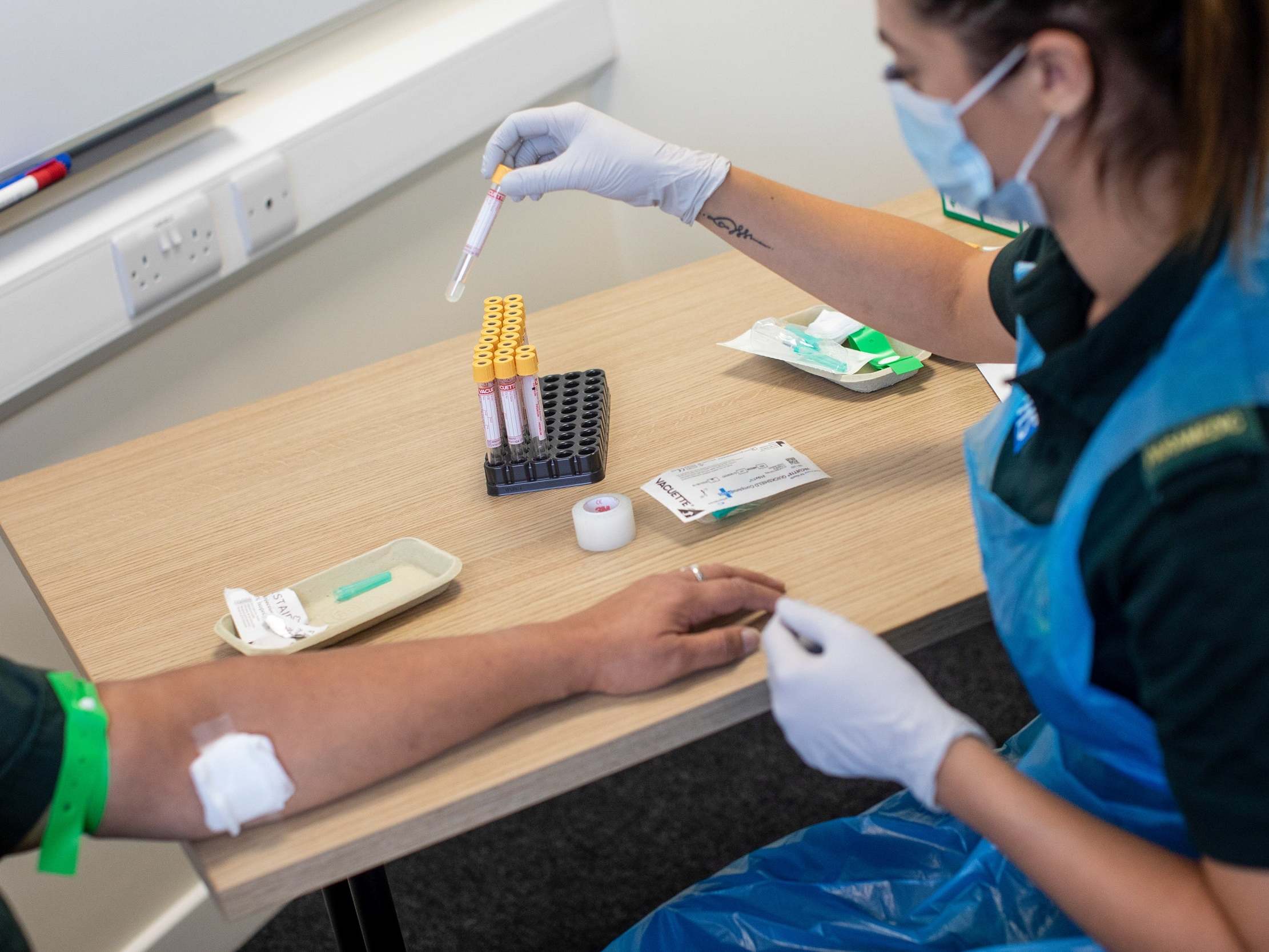
The government is risking “many unnecessary deaths” by lifting lockdown before an effective system is in place to track coronavirus sufferers, an influential group of scientists has warned.
The Independent Sage group said that the NHS Test and Trace system introduced by Boris Johnson is “not fit for purpose”.
The experts also warned that the prime minister’s current programme of relaxation of restrictions is “premature” while evidence suggests that the Covid-19 pandemic is still growing in some parts of the country and a resurgence of the disease is being reported in China, Germany and South Korea.
Download the new Independent Premium app
Sharing the full story, not just the headlines
The group, chaired by former government chief scientific adviser Sir David King, demanded the publication of the scientific basis for the current operation, which relies on a centralised system outsourced to private contractors. Numbers released last week showed that the NHS Test and Trace operation obtained contact details from just 5,407 people in a week when Office for National Statistics (ONS) figures suggested that there were at least 23,000 new symptomatic cases.
In an interim report last week, Independent Sage warned that it would be “impossible” using this system to reach the 80 per cent of contacts necessary to bring the disease under control.
The group proposed an alternative drawing on local council and NHS expertise and including support with food and finances and employment guarantees for all those asked to self-isolate for 14 days. Today, they called for additional support for black, Asian and minority ethnic (Bame) communities which have been particularly hard hit and have been difficult to reach under previous tracing efforts.
Their final report was released as health minister, Lord Bethell, revealed that the NHSX smartphone app to identify contacts of coronavirus patients, once presented as an integral part of the government’s test, track and trace strategy, may not now be available until the winter.
Meanwhile, eight members of the SPI-B committee, which reports to the government’s Scientific Advisory Group for Emergencies (Sage), announced that they are joining an Independent Sage behavioural science sub-group in order to be able to “speak up on issues of importance that we believe are being ignored”.
Independent Sage’s final report noted “worrying evidence shows that the pandemic is still growing in some parts of the country”.
And it said: “We argue that the current government approach to what is called test and trace is severely constrained by lack of co-ordination, lack of trust, lack of evidence of utility, and centralisation, such that achieving the goal of isolating 80 per cent of close contacts is impossible.”
The latest news on Brexit, politics and beyond direct to your inbox
Sir David King said: “This is a critical moment for the country in its fight against Covid-19. As we see new outbreaks in countries with significantly less infection than us it is self-evident that a fully functional test and trace system is essential to the next phase.
“It is quite clear that the UK system is not yet fit for purpose, and indeed we have grave concerns that with the current approach it will never be so.
“In this climate to continue to relax lockdown measures as we are seeing is foolhardy at best and risks significant further spikes with many unnecessary deaths.
“We are therefore calling on the government to share the scientific evidence that these decisions have been based on so that we can properly assess the decisions made and continue to work towards a common goal of ending this awful pandemic as quickly as possible.”
The report warned that “the public’s decreasing confidence in the government’s management of the pandemic” and “inaccurate and excessive claims about the functionality of the system and the numbers being tested” are undermining the test and trace system further.
Stephen Reicher, professor of social psychology at the University of St Andrews, a member of the government’s SPI-B panel who has joined the independent behavioural science group, said: “All the measures we have to combat Covid-19 depend upon public buy-in – whether that be staying at home, keeping social distance, maintaining hygiene or supporting track and trace.
“So understanding the barriers to adherence amongst different sections of the population, creating a sense of community and building trust must all be at the heart of an effective response to the pandemic. The new Behavioural Advisory Group will ensure that these issues are fully integrated into the work of Independent Sage.”
Prof Reicher said the new group’s work would be “entirely complementary” with the advice some of its members are already giving to the official Sage and to the Scottish chief medical officer.
“Whereas in the official groups we are largely responding to questions raised by government, in Independent Sage we are free to speak up on issues of importance that we believe are being ignored or which need greater prominence,” he said. “Whether inside or outside the system, our primary aim is to give government the advice it needs to guide us through this unprecedented crisis.”


